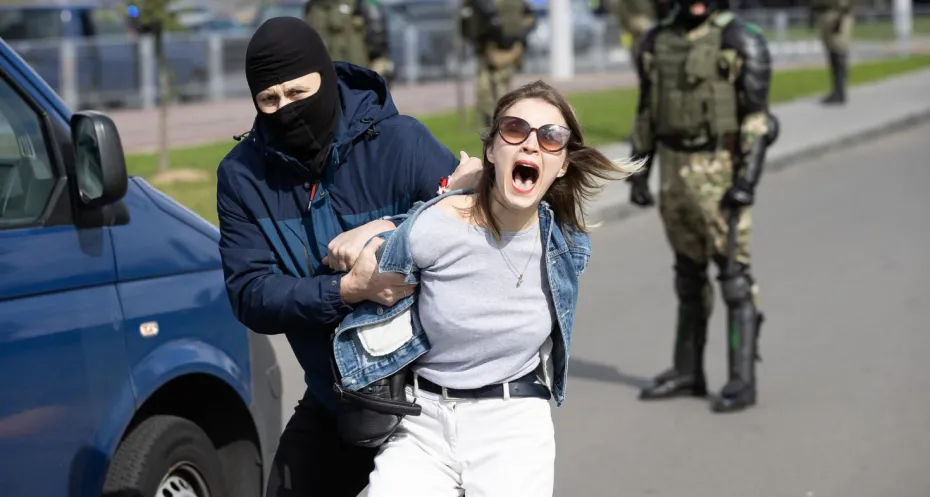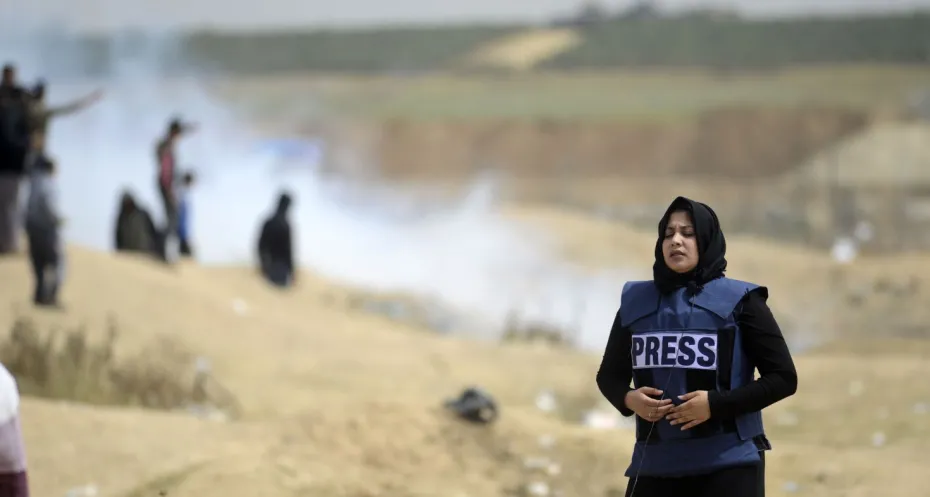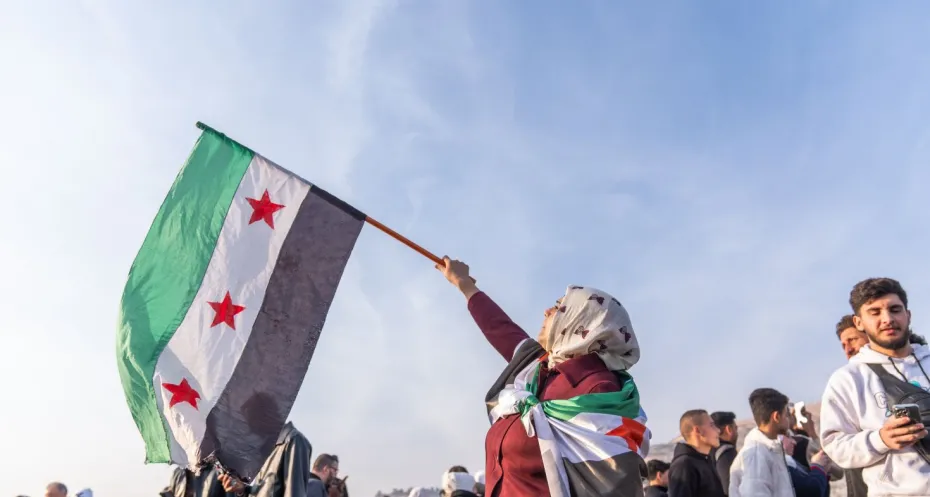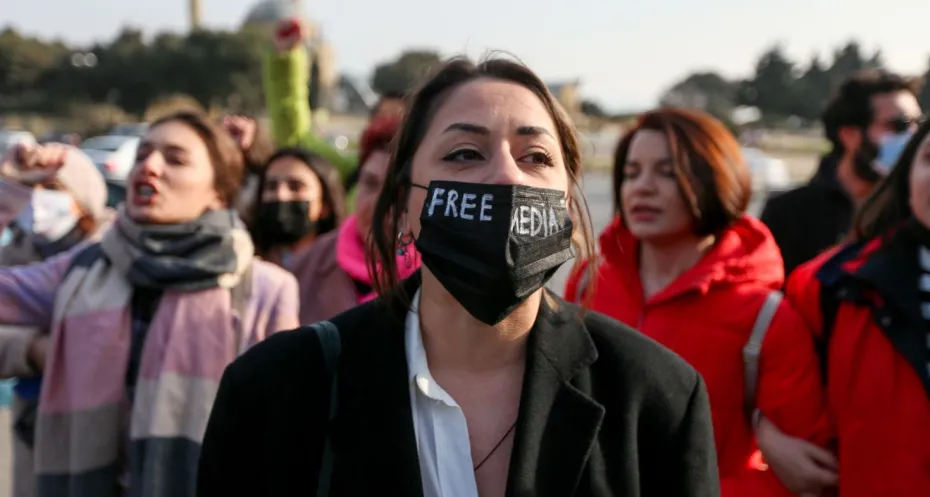Belarus elections - crackdown on press freedom

The presidential elections in Belarus were held on 9 August 2020. Many journalists have been detained, injured and suppressed and right to information was severely violated by the Belarusian authorities. Here's what happened prior and after the Belarus presidential elections 2020.
Update 14 August 2020
Together with 14 other press freedom and civil society organisations, we released a joint statement in which we call on Belarusian authorities to stop attacking, detaining and demonising journalists and media workers and work towards meaningful protections for media freedom.
DOWNLOAD THE FULL STATEMENT:
Update 12 August 2020
So far, the Belarusian Association of Journalists (BAJ) has registered at least 84 cases of violence committed against 62 Belarusian and foreign journalists between 9 and 11 August.
- 3 journalists with wounds/injuries caused by special equipment used by the police against protesters
- 54 journalists being detained, of which 24 are still held in detention.
- 17 journalists were beaten, forced into detention, other physical injuries to journalists
- At least 10 journalists had an encounter with the security forces which consciously used violence against the journalists, deliberately damaged their equipment, and seized flash cards with footage.
Unfortunately some journalists experienced more than just one act of violence. In some cases one and the same person was beaten up, detained and had his/her camera destroyed.
Access to the internet remains limited and the website of Free Press Unlimited partner and media organisation European Radio for Belarus euroradio.fm is still being blocked. People have the right to have access to reliable information.
Prior to the elections
In the months prior to the voting, over 50 journalists and dozens of activists and bloggers were arrested and detained by the Belarusian authorities. On 5 August a Deutsche Welle journalist was arrested and sentenced to 10 days of administrative detention by a court. On 7 and 9 August, six Russian and Ukrainian journalists were arrested in Minsk and administratively expelled from Belarus.
Limited access to internet
During the entire day of 9 August access to the internet was partially or entirely blocked. Independent experts reported that the network connectivity in Belarus was down to 20%. Access to a number of mass media websites was blocked as well as access to an online platform for election monitoring. The connectivity of Belarus to other countries was almost non-existent in the evening. This major shutdown lasted until approximately 10 August 5 a.m. But even then, the network service was not fully restored.
Violence against journalists
In the evening of 9 August, thousands of peaceful protesters gathered all over Belarus to defend their right to a fair vote. Unfortunately they were met by the police with stun grenades, water cannons, and blank ammunition amongst others. A photographer of Associated Press was severely beaten and detained. Many more journalists were detained all over the country - some were released on the same day, but the whereabouts of others is unknown.
What Free Press Unlimited is doing
Free Press Unlimited and other press freedom and civil society organisations are extremely concerned about the lack of access to reliable information.
In a joint letter, we urgently call upon: Irene Khan, Special Rapporteur on the promotion and protection of the right to freedom of opinion and expression, Clément Nyaletsossi Voule, Special Rapporteur on the rights to freedom of peaceful assembly and association, and Anaïs Marin, Special Rapporteur on the situation of human rights in Belarus to take action as their mandate prescribes. Read our joint letter and recommendations.
Podcast
27 August 2020: Tune in for this special Free Press Unlimited podcast about the recent developments in Belarus, and the impact it has on press freedom and independent journalism. Ruth Kronenburg, director of Free Press Unlimited, speaks about this with Maryia Sadouskaya Komlach. She has been a journalist in Belarus for many years, and now works for Free Press Unlimited as a programme coordinator for the region Eurasia.
Photo: Vladislav Barysevich



